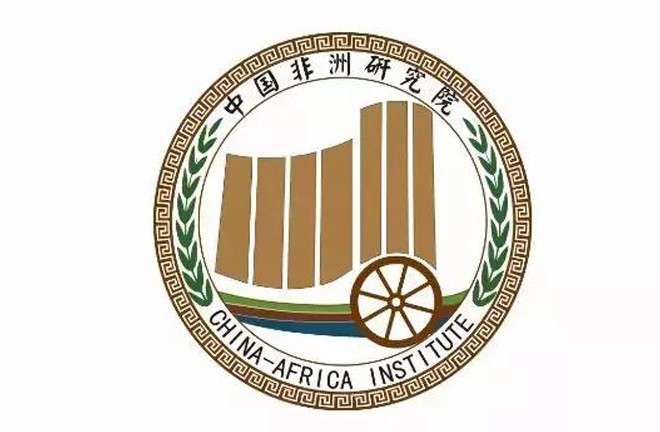New institute to invigorate China-Africa bonds

The logo of the China-Africa Institute integrate elements of the countries’ cultures. Photo:FILE
The world today is undergoing once-in-a-century changes. Peace, development, cooperation and a mutually beneficial world have become the common aspirations of human society. Issues, however, such as hegemonism, unilateralism, terrorism, development imbalances and global governance have posed major challenges. China is the world’s largest developing country, the world’s second largest economy, and the country where socialism with Chinese characteristics has entered a new era. One of the most promising regions in the world, Africa contains a concentration of developing countries.
Academic communication and cooperation is crucial to exchanges among people in China and Africa. The China-Africa Institute supplies a broad platform for closer academic exchanges and cooperation between the two sides.
The new institute is committed to supporting studies on Africa and China-Africa relations. It also helps African scholars strengthen research on China, especially when it comes to the exchange of governance experience. The institute not only focuses on basic theoretical research, but also on practical and applied research. It promotes traditional disciplines and interdisciplinary studies while conducting research on emerging and marginal fields.
A shortage of talent is one of the main bottlenecks hindering the development of the African continent. The same problem is also a major concern about China’s development. Academic research demands a team of professional talent capable of sustained research. The scholars of the China-Africa Institute will boost cooperation with their African counterparts to train high-end professionals in the field.
It is a major historical responsibility for Chinese and African scholars to study and record China-Africa friendship and cooperation. Based on studies, Chinese and African academic circles have told true stories about China and Africa and reflected the problems troubling bilateral relations. They have adopted constructive and responsible attitudes to conduct in-depth study and propose solutions, thus providing intellectual support for the healthy and stable progress of China-Africa relations. In this regard, the new institute will have much to offer.
The China-Africa Institute strives to explore innovative working patterns and conduct international operations. It will set up an international advisory committee by inviting former Chinese and African political figures, renowned experts and scholars, and social celebrities to serve as members who will contribute wisdom to the institute’s development in the long run. Meanwhile, it plans to set up branches in some African countries to cooperate strategically with leading academic institutions in Africa, so that a network of exchange and cooperation between peoples and think tanks will take shape. Specifically, the China-Africa Institute will organize its work through various forms of research, communication, training and dissemination. It supports the two sides to engage in joint research, academic visits, seminars and talent cultivation.
In order to expand the dissemination of academic results, the China-Africa Institute will launch the Journal of China-Africa Studies, the first multi-lingual academic journal in China devoted to studies on Africa. The journal will adhere to the principles of being academic, innovative and open, and it will publish high-quality scholarly papers on African studies, Chinese studies and China-Africa relations at home and abroad. It will be published across the world in the Chinese, English and French languages, striving to become a world-class journal for outstanding academic achievements and academic development.
At the same time, the China-Africa Institute has set up a website to report the two sides’ academic dynamics and promote major progress in cooperation. The website also enriches their exchanges of ideas and culture.
(edited by MA YUHONG)
